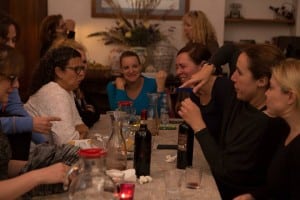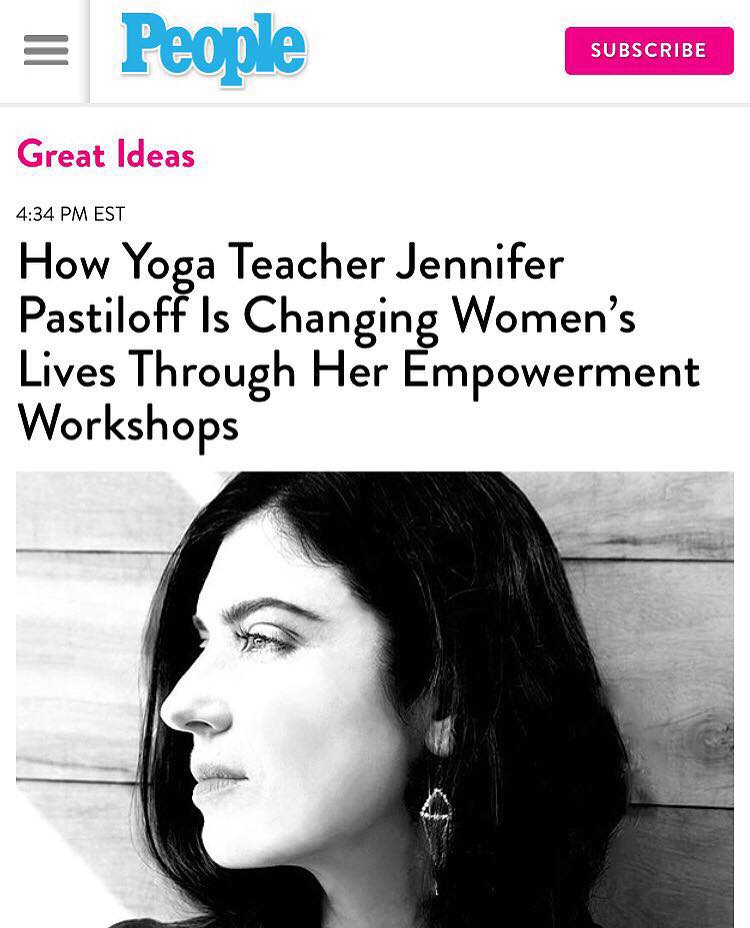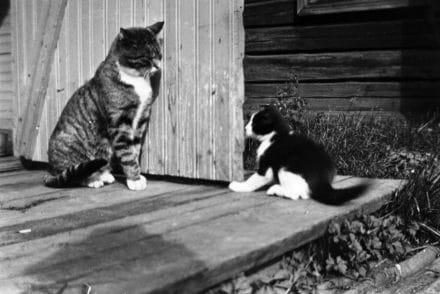By Brandel France de Bravo
One late night, a small, jittery man cornered me outside a friend’s apartment building and held a broken bottle to my face. I had no purse so he asked me to empty my pockets. Then he pointed to my hand and said in a Spanish accent: The ring. Give me the ring. My friend upstairs heard a woman’s scream sear the air like acid: “I thought someone had died.”
The mugging occurred in New York, a few days after landing. The relinquished ring was the last piece of jewelry I had left. The rest had been stolen from my suitcase somewhere between N’djili airport in Africa and the carousel at JFK. Crossing the Atlantic, I had gained five hours, but lost the necklace and earrings Mark had given me. The engagement ring, too, had been from Mark. Made of 18 karat gold and wenge wood, we had designed it together over scotch after a long day at the office where we both worked.
We were two Americans living in an African country banded by the equator, fighting a new disease called AIDS. I had just arrived, fresh from graduate school in public health; Mark, who was seventeen years older, had been living there for nearly two decades. He was confident yet self-effacing, and smiled at me in a way no man my age ever did. Fluent in French and one of the local languages, he knew how to navigate the endemic corruption. He shared an office with Ministry health officials, and became my man on the inside. He praised me and my organization to the officials and divulged their private comments to me over dinner. Before long, I was deemed “indispensable,” my organization’s proposal was funded, and my presence in-country assured. But our collusion in matters of work wasn’t the only reason we had kept our engagement secret.
Mark wasn’t exactly single. He lived with a woman he had met in the interior and invited to the capital. “We sleep in the same bed but we haven’t made love in three years.” I was young and didn’t know any men who said “make love.” Unable to bear children of her own, Mark’s companion helped care for the three he had fathered with another woman. Mark met many women as he crisscrossed the country in his Land Rover, chasing down small pox cases and overseeing vaccination teams. In the country that was then called Zaire, needles brought health but also disease. In 1976, some nuns giving vitamin injections to pregnant women precipitated the world’s first Ebola outbreak. Mark’s oldest child was just a toddler, still living with her mother, and Mark had not yet met his future companion.
“We’re more like roommates or friends now,” he assured me.
After meeting me, he stopped waiting to be rewarded for his years of service and began demanding a transfer to headquarters in Geneva. His plan was to set his “friend” up in business and then say goodbye to her for good. I promised to join him and the kids in their new home in Switzerland as soon as my contract was over. This was our private pact.
There was no telling, Mark warned, what his friend might do to me if she found out. I was willing to take that risk because even though he had the beginnings of a comb-over and a belly, and had never heard of the Sex Pistols, Mark was alluring. He had full lips, a dimple in his chin, and dark skin which made his blue eyes difficult to look away from. Given his features, it was easy to believe the rumor that his Polish mother, wife of a Polish diplomat, had had an affair with Prince Aly Khan in Cairo where Mark was born.
I had lived in Cairo, too, so it seemed we were fated to be together. Nothing about his past or the obstacles we faced could dim the romance of it all. I was battling my first epidemic at the epicenter of AIDS and about to marry a public health hero—a man who’d helped remove the scourge of small pox from the planet. Fate, however, has a roving eye.
A week after I was mugged in New York, I flew to Mexico for an AIDS conference, the reason for all this air travel. I had met one of the conference organizers on a previous trip to the U.S. “You should really try to come,” he had said. “I can get you a free booth. It’s going to be at a beautiful beach resort.” He was Mexican, wore a blue silk suit, and his name began with the same three letters as my fiancé’s. I had been careful to keep the conversation brief, telling Mario it was doubtful that I would attend, given the distance and cost to fly from Africa. Afterwards, I forgot all about him. I made sure not to recall his long-lashed brown eyes even once as I flew the thousands of miles between Central Africa and Mexico. So, I was startled and then flustered when he greeted me, newly ringless, in the hotel lobby. In spite of being stand-offish to the point of rude, I was invited to join him and his friends for dinner. Over red snapper, I wasted no time in telling his friend, Jorgé, loud enough for Mario to overhear, that I was engaged. It was at that moment that the fish bone stuck in Mario’s throat. We hurried him to the conference doctor who, unable to dislodge it with chunks of cantaloupe, prescribed drinks at the disco. On the dance floor, Mario and I exchanged long, sloppy kisses, which somehow led to swimming naked in the Pacific Ocean. The next morning, the bone was gone.
When the conference was over, Mario insisted on driving me to the airport and sharing a last tequila, even though the plane had already boarded. As I stumbled down the aisle, tears striping my cheeks, all eyes were on me. Most of the passengers were conference participants, some of them Mark’s colleagues headed back to Switzerland where Mark was already installed in his new office. Along with all my jewelry, discretion had also been purloined from my suitcase.
When I got back to my apartment in Zaire, I found a tender note from Mark, saying how much he looked forward to my visit over Christmas, next to a gift-wrapped box. Before moving, he had ordered replacements for every piece of jewelry stolen, including a replica of my engagement ring. Instead of sorrowfully carrying one of his cologne-impregnated shirts from room to room as I had done during his earlier, temporary absences, I lay immobilized on the couch. To this day, guilt smells of that equatorial capital: red dirt and the scent of paper money stored between moist breasts.
With great difficulty, given the time difference and erratic phone service in Zaire, Mario and I managed to talk once a week. When would we see each other again, and where? And more important, should we? “I think you should come,” I finally said to him, my voice echoing and crackling. “I need to decide what to do.”
He did, and I did.
Until his arrival, I barely left the couch, except to go into the office. On December 1, World AIDS Day, I went to N’djili Aiport to pick him up, wearing a tee shirt that said: anyone can get the virus; everyone can prevent it.
Love, I had discovered, was shape-shifting, as mutable as any virus. Sometimes, it infects us without our even being aware; months go by before you realize you are forever compromised. Other times, it seizes you violently, hemorrhagically. Either way, there will be fever.
On December 14th, Mario left, returning home to Mexico, and on the morning of the 15th, I boarded a plane to Switzerland. I wanted to tell Mark in person but wasn’t sure what would hurt less: that I’d met someone else—someone who would not get old long before me—or that my love for him was in remission. With Mark no longer there to lean on, I was managing on my own. I was young and directrice of a million dollar project. As for the corruption that had so intimidated me before, I was getting used to it—the way it clogged the pipes but also cleared them. And I was getting used to the flowery French phrases that masked its odor.
What did I say to Mark? I admitted there was someone else, but insisted I wasn’t breaking off the engagement because of another man. No, I told him, I was disillusioned with development, with being a “do-gooder” in a country I knew little about and that wasn’t mine to fix. “When I leave Africa, I want to go home to the States. I want to start over—figure out what I really want to do.” If our seventeen-year age difference hadn’t been a problem before, I explained, it was now—now that he was settled where he dreamed of retiring, and I was so profoundly unsettled.
Like a virus, our love had been opportunistic. Each of us had been a host, each ready to be remade with the material of the other: I with Mark’s steadiness, and he with my selfishness, without which he might never have left. At least he’s out of Zaire and where he wants to be, I told myself, never once reflecting on the woman he had used me to leave.
In spite of my decision to end things, we spent the holiday together. We made the European road trip we had planned months earlier, driving miles and miles in silence. The night before my departure, we buried “us” in bed, our arms around each other heavy as dirt. At the airport, he told me to keep the jewelry, even the second ring made of wenge wood and gold.
That was the last time I saw Mark.
When I left Africa and moved to Mexico, I caught glimpses of him everywhere that first year. His eyes would appear and disappear, like a mirage, in a stranger’s face. The balding man in the car next to me, or the man in corduroys, pelvis thrust forward, ordering an ice cream cone was his reincarnation. The visitations diminished with time until Mark faded, along with the outlines of buildings, into the miasma of Mexico City’s air.
My third engagement ring came from Mario. We married during a cholera epidemic—one he’d been involved in quelling. Between running Mexico’s national AIDS program and helping the country achieve one of the highest child immunization rates in the world, Mario had become a public health hero—at least to me.
In 2014, when he flew to West Africa for the Ebola outbreak, I found myself wondering about Mark for the first time in many years. I flashed back to a dinner with my former fiancé, over which he had described the disease’s brief and brutal appearance twelve years earlier, the fear it had inspired among field workers like him. I had never heard of Ebola before, named for a river seven hundred miles north; it hadn’t made it into any of my graduate school textbooks. As we twisted melted cheese around forkfuls of French bread, his voice dropped to a hush, and I imagined the virus: an equatorial Abominable Snowman.
I Googled a collection of consonants approximating Mark’s Polish surname and “Ebola,” and I found him. In 1995, he had returned to the country of our secret engagement to contain a new eruption of the virus. The three men—Mark and an epidemiologist and virologist from the original outbreak—escaped infection, and their successful efforts landed them in several medical journals. I skimmed a few before coming upon a small announcement in a staff newsletter from 2013. A connoisseur of curries and fine French wine, “he leaves behind a devoted wife and young and not so young children…”
Had I been that “devoted wife,” I would already be a widow. I suddenly regretted looking for Mark two years too late. Had I found him earlier, would I have contacted him? Now, he was gone—just like everything he had ever given me.
Twenty five years ago, after our broken engagement and mournful holiday, I left Geneva and flew back to my job in Zaire. I had only been back a month when I left a young woman alone in my apartment for ten minutes. I had hired her to conduct interviews for a study on attitudes toward condoms, and needed to pay her. “Do you mind waiting?” I’d asked. Pas de tout. Not at all, she’d said. I returned home with the cash, counted it out for her, and we said goodbye. Getting dressed the next morning, I opened a drawer to discover that all the replacement jewelry, including engagement ring number two, was missing.
After that, the only gift from Mark still in my possession was a paperback French-English dictionary. When I left Africa, I left it in my apartment: alone on a shelf of the wood veneer, U.S. Government-issue bookcase. The dictionary was red, the fore edge stamped with “M.” and Mark’s last name. I remember that if you flipped the pages fast enough, the string of consonants—the long Polish name that could have been mine—disintegrated into black dots.
Brandel’s essays have recently appeared in Fourth Genre, Copper Nickel, the Seneca Review, the Chattahoochee Review, the Bellingham Review, and other journals. She is the author of two books of poetry (“Mother, Loose” and “Provenance”), co-author of “Trees Make the Best Mobiles: Simple Ways to Raise your Child in a Complex World” (St. Martin’s Press), and editor of the anthology,”Mexican Poetry Today: 20/20 Voices.

Join Jen Pastiloff in Tuscany Sep 17-24, 2016. There are 2 spaces left. This will be her only international retreat in 2016 and is her favorite retreat of the year. Email barbara@jenniferpastiloff.com asap. More info here. Must email first to sign up.

Join Jen Pastiloff at her Manifestation Workshop: On Being Human in London Oct 1st and Dallas Oct 22. Click the links above to book. No yoga experience needed- just be a human being! Bring a journal and a sense of humor. See why People Magazine did a whole feature on Jen.

Check out Jen in People Magazine!





No Comments